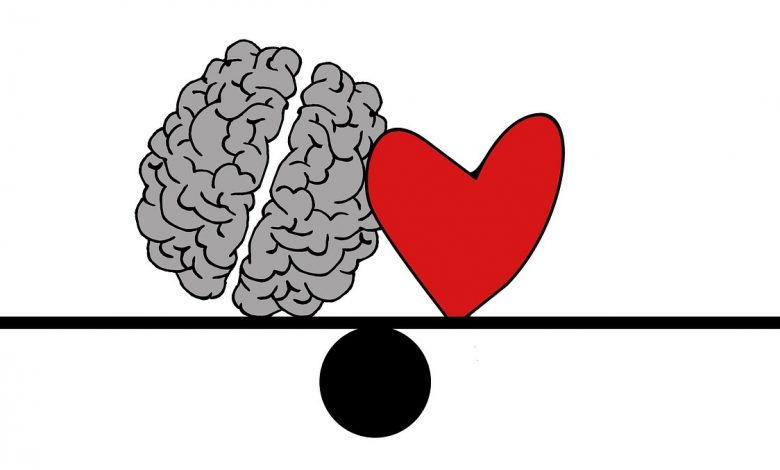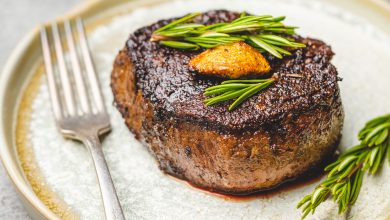
The Psychology of Weight Loss: Making Changes That Stick
Weight loss is often one of the hardest things for people to accomplish. Despite the seemingly simple mathematical solution that losing weight equals more calories out than calories in – it’s not always that easy. That’s because we’re not just scientific experiments or robots that function according to a simple formula. We’re human – and humans come with a lot more complexity than just calories in-calories out. While the science may sound great – and in fact, the science may be great – it’s just not how people work. Psychology can have as much to do with losing weight as science, for reasons that might be more practical than you’d imagine.
Your Body vs. Your Brain
Diets, calorie-count-wise, are not difficult to understand or implement. That said, it doesn’t really matter how great and scientifically correct something might be if the same situation is simultaneously making you unhappy. Diets and weight loss are about creating a healthy lifestyle, which is about the long term. The idea is less to survive a few weeks and more about creating habits that will stick, which is really the ultimate goal of weight loss – to keep the weight off so you can enjoy a healthy, happy life. So as much as you might tell yourself the science adds up, the truth is that you’re never going to stick with what you’re doing, no matter how correct it is, if it’s making you miserable. The struggle with strict diet plans and intense meal rationing and calorie counting is that radically shifting your entire lifestyle over the course of a day is hard to get used to and even harder to maintain. And while it makes a lot of sense to be excited about making a change and logical to want to dive in full throttle immediately, more often than not, smaller changes over time are more likely to ultimately get you where you want to go and keep you there.
According to a study done by Phillippa Lally, a health psychology researcher at University College London, it takes a minimum of 66 days to form a habit on average. That said, for some people it only took 18 days and for other people it took almost a year. So here once again, we have a problem with reducing people to numbers or statistics. The point, however, is that building habits is what you want to make long-term changes, and habits are better built to last when they come with baby steps. Say you decide to change your entire diet from junk food and sodas to water and green vegetables (this is purely for example’s sake). While your intention may be great and you might even be getting lots of healthy vitamins and nutrients from your veggies, how long will it be until your brain starts signaling how very much it resents this new situation, how delicious those fries look, and then feelings of anger and frustration exact your cravings’ revenge suddenly over a whole plate of fried potatoes? After that – you might think – what’s the point of starting again?
Baby Steps In Practice
Everybody backslides sometimes. And while the important part, ideally, is to always get back on the horse – you might not fall off as much in the first place if you don’t demand so much of yourself so fast. For example, you might love a super sugary coffee in the morning. That extra shot of toffee nut syrup in your venti latte might really get you going, but what if you just cut it down a bit? What if, on day one, you simply forgo the extra shot – and then later take the sugar down just one more notch? Or what if, instead of downing a brownie to avoid that afternoon crash, you swapped it out for a granola and yogurt with honey (for example)? You’d still get your sweet fix, but probably with fewer calories along with an extra dose of nutrients. The changes you make are going to be depending on you – each person’s tolerance varies, which is why catch-all plans don’t really work for everybody – and the small changes you make are probably not going to be overly noticeable to your body or diet-defensive brain. On top of that, small changes will be easier to build on, creating bigger and bigger changes overall as you go. After a while, you may even find that the idea of going back to that sugary latte or afternoon brownie isn’t even that appealing anymore. This is how a lot of lifestyle changes happen. Even bad habits can form this way, which is why sometimes we don’t even notice them at first, but you can turn that sneakiness to your advantage.
Being Human
Similar to not exacting extremes upon yourself, insisting upon perfection can also be a fatal flaw in building the lifestyle you want. It’s commonly known that being overly restrictive leads to massive breaches in plan – like that plate of fries we discussed earlier – while having a few food vices is normal for most people. Ignore these vices completely, and they’re probably going to get angry. Again, everyone is different and you may be the kind of person who doesn’t need to take a walk on the wild side sometimes, but this is the exact rationale behind a cheat day in meal planning. In terms of small habits, we’re not necessarily suggesting a full cheat day – but if a small cheat moment gets you through, it’s worth it. For the fiftieth time, you may be someone who does better avoiding temptation entirely, depending on you. But if having a few fries satisfies that part of your brain that’s furious with its fry restriction and prevents you from tackling the whole plate, then letting yourself be human alongside your other healthy habits may put you in a better position to build your long-term plan.
Beyond Habits: “Gratitude” & Marketing
Gratitude is a healthy thing. Many of us, however, had that idea ingrained in us through food – with the reminder of those less fortunate going hungry while we might deign to throw food in the trash. A useful sentiment, it’s more about values than health, and unfortunately a person on one side of the world being overweight doesn’t benefit anyone in any other part of the world, or even next door, at all. If you really want to get into it, you could argue that you being in your best health is actually the real benefit to others – in optimal condition to contribute in your community, be there for your loved ones, and share your joy and energy with others. Throwing the rest of that ice cream into the garbage after you’ve satisfied your sweet tooth doesn’t hurt anyone – and the gratitude that age-old sentiment implies is ultimately not about food. Leftovers will keep, sure, but don’t let the guilt of wasting something make you feel bad about caring for your health, because even if you clean your plate, it won’t help anyone.
The road to a healthy lifestyle through weight loss is exactly that – a journey, meant to last. Marketers, meanwhile, understand that a lot of people don’t try to make small changes, instead getting frustrated with failures making big changes in the short term. This is why the market for quick fixes is huge, with savvy marketers touting the next big thing in weight loss – the secret tea, the wrap that actually works, and so on. They make a lot of money doing it too. While bigger, short term goals can be great for achieving specific milestones or accomplishments (such as training for an event, etc), they’re also a pitfall for many people on their health journey. As the saying goes – “A journey of a thousand miles begins with a single step” – and then one more, one more, and one more, until you arrive where you want to be and stay there.



